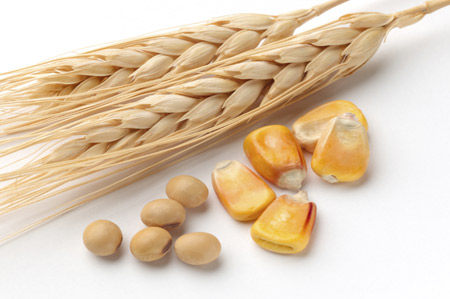 (Bloomberg) – Wheat advanced for a second day, extending a rebound from the lowest level in nine months, on concern that freezing conditions in the U.S. probably hurt the winter crop, while wet weather may delay planting of the spring crop. Corn fell for a fourth day, deepening a bear market.
(Bloomberg) – Wheat advanced for a second day, extending a rebound from the lowest level in nine months, on concern that freezing conditions in the U.S. probably hurt the winter crop, while wet weather may delay planting of the spring crop. Corn fell for a fourth day, deepening a bear market.
Wheat for delivery in May gained as much as 0.9 percent to $6.765 a bushel on the Chicago Board of Trade, after dropping to $6.5975 on April 1. It traded at $6.72, up 0.2 percent at 9:26 a.m. in Singapore on volume that was about 59 percent above the 100-day average for that time of day.
Freezing conditions early last week may have damaged so-called jointing wheat in the southern plains, while in the Delta region, heavy rain this week may delay spring field work, Bryce Anderson, an agricultural meteorologist at DTN, said in a report yesterday. Jointing refers to a stage when nodes develop on a plant’s stem, according to a Queensland government website.
“The concern now is the weather and how the yield will turn out,” George Pallett, a trader at Convector Grain Pty. Ltd. said by phone from Sydney today. “The recent winter-wheat crop condition showed an improvement, but it’s still the worst national ratings for this time of the year since 2002.”
About 34 percent of the U.S. winter-wheat crop was rated good to excellent in the first rating of the season, up from 33 percent in November, when the crop was in its worst shape since record keeping began in 1985, according to the latest U.S Department of Agriculture data released April 1.
Biggest Crop
Corn for May delivery fell as much as 0.4 percent to $6.38 a bushel in Chicago and was at $6.395. The most-active price fell to $6.34 yesterday, the lowest since June 29, after data from the USDA last week showed reserves above expectations and farmers plan the biggest crop since 1936.
Rough-rice for May delivery advanced as much as 0.9 percent to $15.91 per 100 pounds in Chicago, extending yesterday’s 3.3 percent climb to reach the highest level since March 1. It last traded at $15.90.
Rice surged by 50 cents yesterday, the most allowed by CBOT, on concern that farmers in the U.S., the fifth-largest shipper, will plant the smallest acreage since 1987 as they switch to more profitable crops.
Soybeans dropped as much as 0.6 percent to $13.855 a bushel in Chicago, the lowest price since Jan. 14. The oilseed, which traded at $13.8625, fell for the second straight quarter in the three months to March.




